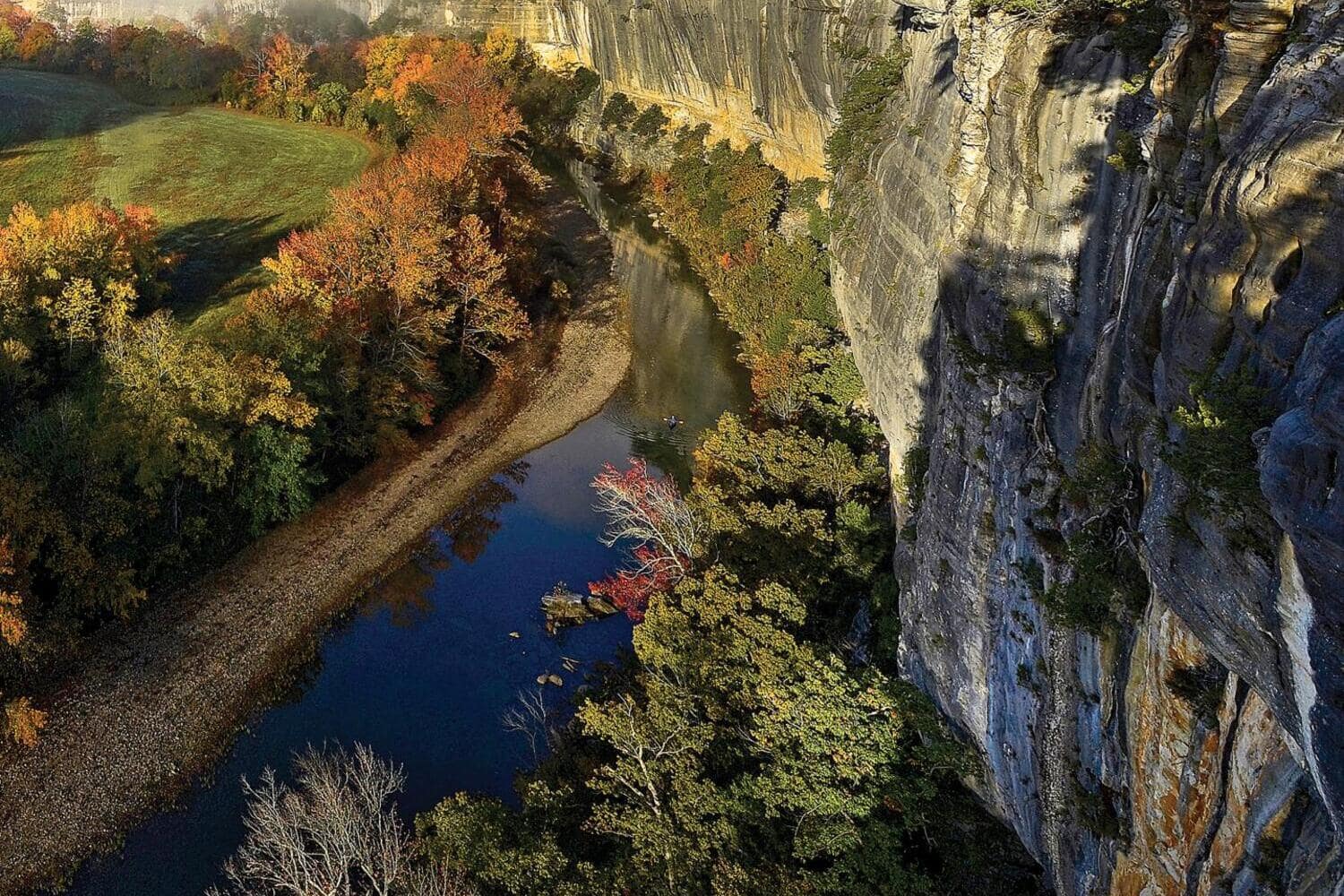Arkansas is one of those U.S. states that often go unnoticed, yet it holds a wealth of surprises. Located in the southern part of the country, it combines scenic mountain landscapes, dense forests, hot springs and a rich and complex history. This is where presidents were born, civil rights struggles unfolded and people still search for real diamonds. Arkansas brings together nature, culture and everyday life in a unique way. Here is a collection of fascinating and educational facts about Arkansas you may not have known.
- The name Arkansas comes from the language of the Siouan tribes who called a local river Akansa. French explorers modified the word, adding a prefix and pronouncing it as Arkansas. In 1881, this spelling and pronunciation were officially adopted. Although the name ends in an s, it is silent in pronunciation.
- Arkansas is the only state in the U.S. where anyone can legally search for diamonds and keep what they find. At Crater of Diamonds State Park, visitors are free to dig for gems in the soil. Every year, dozens of real diamonds are discovered there by tourists. The largest diamond ever found at the site weighed over 40 carats.
- The capital of Arkansas is Little Rock, a city that played a key role in the U.S. civil rights movement. In 1957, a major crisis unfolded over the integration of African-American students into Central High School. President Eisenhower had to send federal troops to ensure the students’ rights were protected. This event became a symbol of the fight against racial segregation.
- Arkansas is famous for its hot springs, especially in the city of Hot Springs. The area is home to Hot Springs National Park, where dozens of thermal springs flow from the ground. In the 19th century, these waters were considered healing and attracted thousands of visitors. Even notorious figures like Al Capone used to visit the spas regularly.
- Arkansas is one of the most forested states in the U.S., with nearly half its area covered by trees. Oak, pine, maple and hickory trees dominate the forests, creating colorful views, especially in autumn. The timber industry plays an important role in the state’s economy. At the same time, eco-tourism is steadily growing.
- The Ozark and Ouachita mountain ranges run through Arkansas, offering caves, waterfalls and scenic canyons. These regions are popular with tourists who enjoy hiking and kayaking. The mountains are home to wildlife such as bears, foxes, eagles and even cougars. Well-maintained trails and observation points are open to the public.
- Arkansas is the birthplace of the 42nd President of the United States, Bill Clinton. He was born in the town of Hope and later served as the state’s governor. In Little Rock, visitors can explore his presidential library, a major tourist attraction. The modern building is located on the banks of the Arkansas River.
- Arkansas is home to the only man-made lake in the U.S. created solely for recreational purposes — Greers Ferry Lake. Built in the 1960s, it quickly became a favorite destination for fishing, swimming and boating. The lake is known for its crystal-clear waters and beautiful shorelines. Thousands of visitors flock there during the summer months.
- The state is rich in natural resources, including bauxite, lead, zinc and coal. Arkansas was once a leading U.S. producer of bauxite, which is used to make aluminum. While mining has declined, its legacy is still visible. Many former mining sites are now undergoing land restoration efforts.
- Since 1986, the town of Murfreesboro has hosted an annual watermelon festival. This multi-day event features contests for the largest melon, parades and concerts. It is one of the most cheerful celebrations in the southern United States. Local farmers are known for growing especially sweet and juicy varieties.
- Arkansas has over 6,000 caves, most of which formed through karst processes. The most famous is Blanchard Springs Caverns, which is open to the public and features stunning stalactites and stalagmites. Other caves contain archaeological evidence of ancient settlements. These sites are actively studied by scientists.
- The Arkansas state flag has a distinctive design reflecting its historical roots in both the Confederacy and the United States. A central diamond represents the state’s unique diamond deposits. Three stars symbolize France, Spain and the U.S. as former colonial powers over the land. A fourth star marks Arkansas as the 25th state to join the Union.
- Bentonville, Arkansas is home to the global headquarters of Walmart, one of the largest companies in the world. The company began as a small store founded by Sam Walton in 1962. Today, Walmart operates over 10,000 stores worldwide. Bentonville has since become an important business hub in the South.
- Arkansas is known as one of the most hunter-friendly states in the country. Hunting is allowed for deer, turkey, ducks and even bears. Hunting seasons are strictly regulated, and license fees support wildlife conservation. The state maintains an extensive network of hunting areas across its forests.
- Despite its largely rural character, Arkansas is actively investing in education and technology. The University of Arkansas in Fayetteville is a leading research institution in the region. It conducts cutting-edge research in agriculture, biology and engineering. The state is working to retain its young talent by offering modern academic and career opportunities.
These interesting facts about Arkansas prove that the state deserves far more recognition and attention. It offers a unique mix of natural beauty, rich history and modern development while preserving its authentic charm. Arkansas is more than just a place on the map — it is a vibrant region with deep heritage and strong character. Such amazing facts help us better understand the diversity of the United States.





